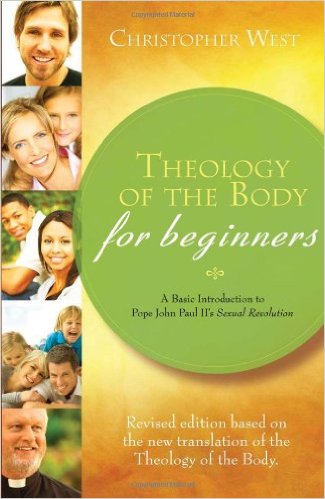There's been a lot of buzz about Pope John Paul II's "theology of the body," but the original body of writings is daunting for even those with a scholarly bent. Christopher West "translated" those writings into a far more approachable format with his book Theology of the Body Explained. However, even that book is 500 pages long. Recognizing that the vast majority of those interested in the topic might be put off by a tome of that size, West condensed it down into a very manageable 150-page book "for beginners"—and 20 of those pages are glossary and notes. Theology of the Body for Beginners is a relatively easy read, yet it still conveys some of the most profound ideas from JPII's writings.
The publisher writes on the back of the book: "Based on the words of Jesus, John Paul II's reflections on the body and sex take us to the root of the modern crisis and chart the path to an authentic sexual liberation." That line sums up both the motivation for developing a theology of the body and the very positive view of the body and sex that JPII presents. Within this context, he also addresses the most prevalent sexual disorders of modern cultures such as promiscuity, infidelity, homosexuality, contraception, and disdain for celibacy.
One key idea underlies the entire book: the body as a sacrament. This becomes clear if we think of the broader, more ancient meaning of sacrament, "a sign that makes visible the invisible mystery of God" (p. 5). For example, West quotes from JPII's Oct. 13, 1982 reflection on the topic: "In redemption, that same mystery of divine love becomes ‘a visible reality [through] the indissoluble union of Christ with the Church, which the author of the letter to the Ephesians presents as the nuptial union of spouses'" (p. 89).
There are many marvelous insights in this small book. For example, you'll find out why Adam and Eve were not ashamed of their nakedness until after they sinned, why lust even within a marriage is wrong, and why contraception violates Jesus' new commandment to "love one another as I have loved you" (John 15:12).
Some might expect the theology of the body to be burdensome with injunctions against sexual immorality. But the reality is that it addresses immorality only in the context of the greater call to love. It will definitely cause you to reflect on your personal choices and attitudes, and maybe even bring conviction about things you need to change. But the overall tone is positive, uplifting, and inspiring.










